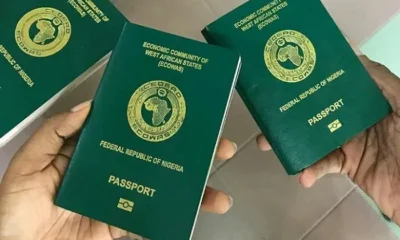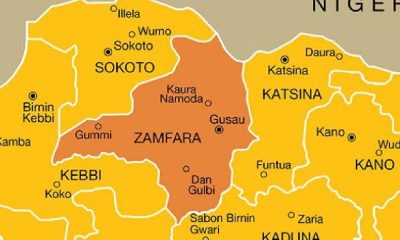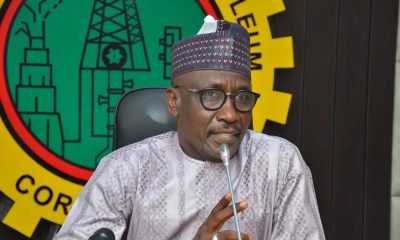Dr. Emmanuel Zwanbin, El-Amin University, Minna
On the first of August 2024, an organised 10-day demonstration to demand good governance and accountability occurred across cities in Nigeria. However, a twist was added to the protest. Protesters waved Russian flags in Kano and across northern states signifying a possible Russian interference.
This spectacular display of the flag highlighted Russia’s growing geopolitical interest in the region with broad implication on domestic grievances and foreign contestation. This trend represents Russia’s geopolitical effort to counterbalance the dominant role of the West in Africa, especially in the Sahel and West Africa.
The military overthrow of civilian governments in the region may have external influence, however, it is a symptomatic manifestation of domestic public discontent taken advantage of my foreign interests. Therefore, the coup d’etat is an intersection between domestic turmoil on the one hand where the citizens are frustrated with the political elite and France and on the other hand, Russia’s return to Africa to strengthen its global alliances.
There is an increasing shift in global alliances and geopolitical positioning in Africa. These alliances have seen the contestation for influence between the conceptual West on one hand, and Russia and China on the other hand. This is particularly heightened by the widespread domestic discontent, terrorism and regional instability, thereby reinforcing the fact that there is a nexus between domestic issues and foreign policy of a state. Therefore, the end bad governance protests have foreign policy implications that lessons can be drawn from especially with the Russian flag saga.
The display of Russian flag during the #EndBdGovernance protest was believed to have been instigated by Nigerien infiltrators. They alleged Nigerien infiltrators were frustrated with Nigeria’s unfriendly stance against the coup Junta. The Russian flag can be construed in terms of being symbolic and strategic. Conversely, the flag symbolises the growing influence of Russia as was seen in Burkina Faso, Mali and Niger before and after the coups. Additionally, it represents the rejection of the status quo and an invitation to Russia and a welcoming gesture. The emergence of a flag became a debate as to whether it was a Russian flag or Nigerian army flag. The focus here was the call for a military intervention, which resonate with the trends of Russia strategies in the Sahel and West Africa particularly in Niger, Mali, Burkina Faso. It is worth noting that Russia does not pretend about its expansionist ambition. This, therefore, cannot be ignored.
The July 2023 military coup in Niger marked a watershed in Nigeria’s foreign policy towards Niger. The ties between Nigeria and Niger are not merely diplomatic. Both countries have shared history, religious, linguistic and familial connections. The ECOWAS sanction backed by Nigeria was perceived as a betrayal of the longstanding and cordial relations between the two states. Niger expected strong solidarity from Nigeria but was met with series of sanctions. Nigeria missed the opportunity to utilise its soft power tools to bring the junta under its influence and redirect it to democratic pathways. Thus, Russia took advantage by acting as its messiah from the Western backed sanctions. The tradition is usually, when a coup occurs, Western powers condemn the coup, call for return to democracy and severed diplomatic relations with such country. The lack of quick diplomatic maneuver by Nigeria created a power vacuum which allow international scavengers to consolidate their influence in the country.
The cutting of electricity supply to Niger and the closure of its international borders by Nigeria was a breaking point in the relations between the two historically friendly countries as it was considered an exercise of a last resort. Nigeria should have explored the use of smart power to entice Niger rather than an outright hard power sanctions. For instance, Nigeria-Niger energy partnership has been vital to the flow of water from the Niger River into two major power stations in Kainji and Jebba with a combined power generation capacity of 1,330 Megawatts while Nigeria supply electricity to Niger in exchange. However, this created a trust deficit between the two states and threatened their energy security.
The growing influence of Russia in the Sahel and West Africa has several implications. First, there is increasing geopolitical realignment which culminated in alternative supranational organisations such as the Alliance for the Sahel. Second, Russia’s overt military support for the Junta proliferates coups across the regions. Third, Russia’s disinformation depletes Nigeria’s attractiveness and dominance in the region. Fourth, Russia’s search for coastal access to strengthen its foothold in the region is an issue of great concern. These challenges posed an impasse between democracy and dictatorship.
Looking forward, to address these foreign policy challenges will be critical if Nigeria must assert herself as a regional hegemon with substantial geopolitical influence among the community of states. It is not in doubt that Nigeria’s traditional sphere of influence in West Africa and the Sahel has been threatened by the coups, particularly their withdrawal from ECOWAS diminishes regional cohesion while allowing Russia’s influence to flourish in the region. Therefore, for Nigeria to exert geostrategic and geopolitical influence, she must deliberately adopt smart power strategies and show of force in combining soft and hard power.
Firstly, Nigeria must improve coordination between the intelligence agencies and the Ministry of Foreign Affairs for prompt response leading to strategic foreign policy decision making. Secondly, Nigeria must move from its accidental public diplomacy to deliberately use institutional synergy and its cultural wealth such as music, sports, food, films and fabric to influence its attractiveness. By intentionally leveraging on the abundance of its soft power resources, Nigeria can push back on regional lack of cohesion. Thirdly, strengthening regional alliances despite the emergence of the Alliance of Sahel States (Alliance des États du Sahel-AES), foreign publics engagements, promotion of regional security initiative such as the Multinational Joint Taskforce. It is imperative for Nigeria to re-assert itself and champion counter efforts against Russian disinformation and predatory influences.
Fourthly, the Ministry of Foreign Affairs must galvanise foreign policy think tanks and the intelligence community to provide early detection of emerging foreign policy phenomenon. For instance, Nigeria Institute for International Affairs (NIIA) can put up an initiative that will map and organise foreign policy experts in clusters for interdisciplinary collaboration and to provide analysis on pressing foreign policy issues that will enhance intelligence and decisionmaking.
Fifthly, Nigeria’s economic foreign policy must bring together commercial entities with transnational capacity such as the Dangote Group, BUA group and Innoson Motors to mention but a few to the forefront in advancing its national interest in the region and beyond.
By and large, to deal with the shifting regional alliance, Nigeria needs to recalibrate its “Africa as the centrepiece” strategy with a more pragmatic approach to dealing with the realities of emerging geopolitics and national interests. Russian will remain opportunistic while the Western will continue to challenge Russia and other revisionist states in Africa. Nigeria must position itself as a melting pot and take advantage of the dynamic changes in the region. As a regional hegemon, Nigeria must remain focus on strengthening regional alliances, invest generously in public diplomacy, and foster regional security cooperation. By and large, Nigeria remains an important buffer against Russia’s calculated strategy of expansion. It must be decisive in countering the geopolitical encroachment of predatory states to remain relevant in its traditional sphere of influence in the region.





 Education24 hours ago
Education24 hours ago
 News11 hours ago
News11 hours ago
 Entertainment11 hours ago
Entertainment11 hours ago
 News11 hours ago
News11 hours ago
 News11 hours ago
News11 hours ago
 News11 hours ago
News11 hours ago
 News5 hours ago
News5 hours ago
 News11 hours ago
News11 hours ago





